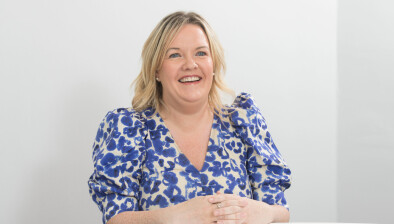Catherine Feechan: Four ‘D’ planning is critical for business

Catherine Feechan
If there is one thing the pandemic has taught company founders, it is how an unexpected event can be catastrophic to a business.
In good times, when things are going well and a business is growing, it’s natural to not want to dwell on negative, unexpected events that could instantly derail that success. However, as businesses grow, tensions can quickly develop between the founders themselves and/or between the founders and other important stakeholders, including family members. Working long hours building a business can take a toll on health and wellbeing and lead to serious disputes, illness, family break-ups, and in extreme cases, death.
While these are not outcomes many of us like to focus on, planning for potential trauma is essential in minimising risk and safeguarding a business’s financial position. Considering the four Ds – death, divorce, dementia, departure – and their potential impact on a business is a good starting point in developing a proactive plan.
For founders, it’s important to think about the practicalities of how their business would operate without them. Succession planning is not something most start-ups initially consider but as the company starts to grow it’s important to have a plan setting out who will fill the role of any key person should they have to suddenly depart. If, for example, the company would need to hire someone new and pay them at market rates, they may wish to consider having insurance in place to cover that additional cost.
All the four Ds are likely to impact share value. In the event of a sudden death of a founder, their shares would most likely be transferred to family members. If those family members haven’t worked in the business, this could adversely affect the running of the company going forward. To avoid this situation, it’s essential that agreements are put in place giving other shareholders the right to buy the shares of a deceased founder. Specific provisions about shares should also be included in founders’ wills.
Given the pressure that running a business can place upon a marriage, divorce is another unpleasant but ever-present issue that should also be considered in terms of its impact on a company. In the event of a divorce, a business founder may be forced to transfer some of their shares to their ex-spouse as part of the financial settlement. Having a former partner involved as a shareholder in a business can be hugely disruptive to its future so, for the sake of all its founders, having articles of association in place that restrict transfer of shares in the event of divorce is crucial.
Dementia or loss of mental or physical capacity is another issue that few people want to think about but, sadly, it does happen and businesses should have a plan to deal with it. Putting a power of attorney in place is worthwhile considering it will allow a named person to deal with the affairs of a business while a founder is incapacitated.
Finally, the sudden departure of a shareholder who works in the business can also cause significant problems if they retain all their shares. Ensuring good leaver/bad leaver provisions are included in a shareholder agreement or articles of association will help minimise the disruption by allowing others to buy the shares owned by the departing shareholder and can be vital in enabling the recruitment of a high calibre replacement.
As COVID-19 has demonstrated, it’s not possible to cover every eventuality but putting in place a proper shareholders’ agreement and articles of association along with appropriate insurance measures can go a long way in coping with the unexpected. Company founders should be proactive in setting out a robust plan to deal with the four Ds if and when they occur so they can avoid major problems in future and give themselves the freedom to focus on doing what they do best – developing their business.
- Catherine Feechan is a corporate finance partner at Davidson Chalmers Stewart LLP








